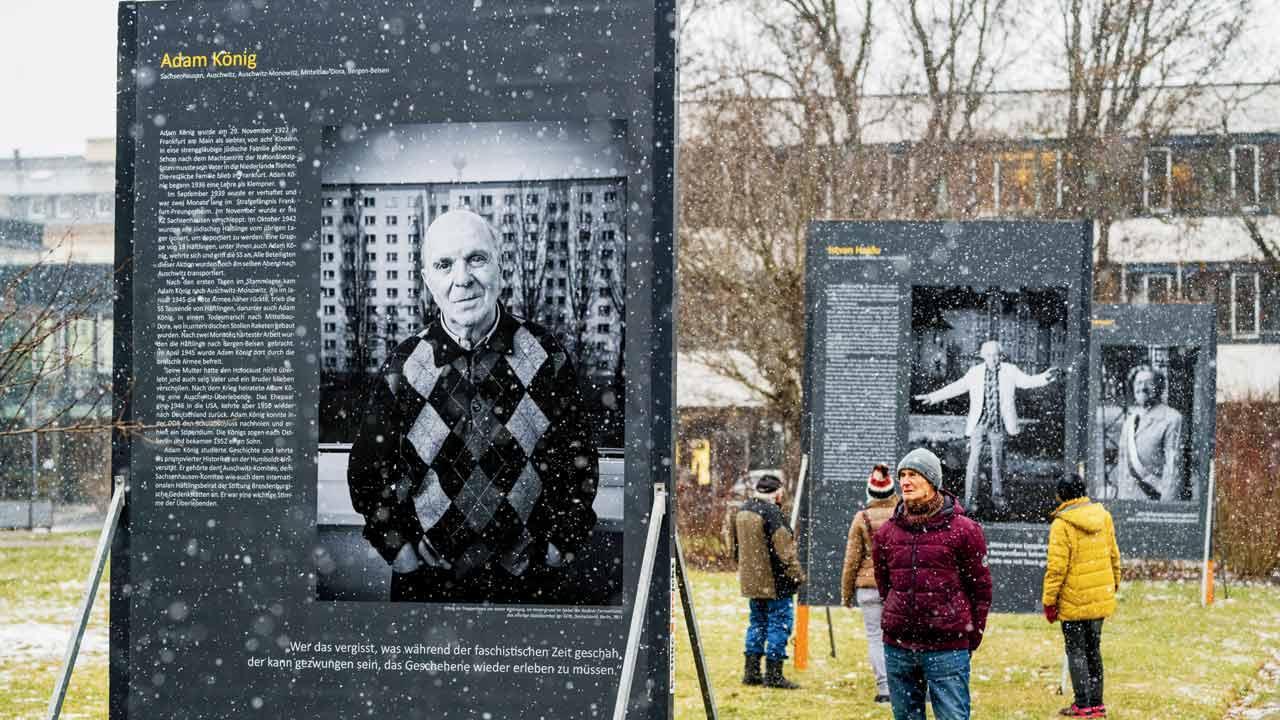To not pay attention to grievous crimes against humanity is to risk enabling them all over again

Visitors at an exhibition titled ‘KZ überlebt’ (Concentration camp survives) by German photographer Stefan Hanke in Erfurt, eastern Germany, on January 27, 2021, the International Holocaust Remembrance Day. Pic/AFP
The Holocaust occupies my mind now and again, much as it has for decades. There are always specific triggers for this. A film like Schindler’s List, for instance, or a second-hand copy of Elie Wiesel’s Night purchased outside a railway station. For the past couple of years though, my triggers have been comments made by our elected representatives in Parliament. It is the language used by these illustrious men and women — many of whom have been accused of serious crimes like murder, extortion, and kidnapping — that bothers me, because of how they strongly echo what was being said in Germany during the 1930s.
ADVERTISEMENT
When a minister refers to people as termites or parasites, those being discriminated against are rendered less human almost instantly. This makes it simpler for those oppressing them to treat them with contempt because they have been stripped of their humanity. In a civilised country, this is the sort of language that invites imprisonment. In a country run by criminals, it is simply dismissed as an overenthusiastic election speech.
I often wonder about our history textbooks, and why they fail to give events such as the Holocaust the attention they deserve. Yes, people and incidents and events related to India’s past need to be prioritised, but tragedies that affect us all as a race should never be swept under a rug. They need to be examined constantly and taught to new generations in the hope that lessons learnt by some of our ancestors may someday be acted upon by those who come after us. It is a message that bears constant repetition the world over.
Try this experiment with family and friends. Ask them what they know about the Holocaust: how it began, where it took place, or how many lives it claimed. The answers will vary, obviously, but will yield a few surprises nonetheless, irrespective of how educated the people you pose these questions to are. Try it again, this time with lesser-known but equally horrific crimes that are closer to our time, such as the reign of the Khmer Rouge between 1975 and 1979, or what occurred in Rwanda in 1994. The gaps in knowledge that leap out almost at once are reasons for concern, specifically because of the paths our nation has been forced upon repeatedly since it came into being.
For every person devoted to the act of remembering, there will be someone tasked with making sure we all forget. This is why we need to evaluate not just how we look at atrocities within our borders, but how the world at large deals with these catastrophic events. We need to learn about the Holocaust because it can teach us to identify worrying signs of bigotry in our own backyard and prevent them from turning into a monster we no longer have control over.
I have spent much of the past year reading testimonials from survivors; it is an act that leaves me broken-hearted every single time, but I do it because it is necessary. I read poems like The Survivor by Primo Levi — ‘At night, under the heavy burden / Of their dreams, their jaws move, / Chewing a non-existent turnip’ — and think about what it means for one group of people to turn against another and allow irrational fears to overwhelm their sense of good and evil. These are lessons we all need, which is why I worry when our textbooks devote less than a few throwaway paragraphs to them.
We live in a time where news of farmers killing themselves, girls being murdered by relatives, and men massacred by khap panchayats, is deliberately suppressed. Information that rightfully belongs to us all is kept from us. Decisions about land, health, and the environment, that affect us all, are made by small groups of people in the dark. Funds we all contribute to are distributed without our knowledge, and assets that belong to us all are surreptitiously auctioned to the highest bidders in private.
If we barely have access to events taking place in our own time, what hope can we have in the possibility of history telling our children the truth? This is why the Holocaust matters, even if we believe it has nothing to do with us. We need to understand how and why something that horrific took place, diminishing us all. We owe it to those who were murdered to ensure nothing like it happens again, no matter where on this planet we choose to put down roots.
When he isn’t ranting about all things Mumbai, Lindsay Pereira can be almost sweet. He tweets @lindsaypereira. Send your feedback to mailbag@mid-day.com
The views expressed in this column are the individual’s and don’t represent those of the paper.
 Subscribe today by clicking the link and stay updated with the latest news!" Click here!
Subscribe today by clicking the link and stay updated with the latest news!" Click here!






